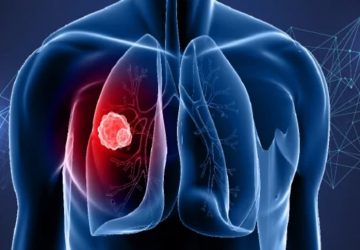
When you buy through links on our articles, Future and its syndication partners may earn a commission.

This little plant is a lot tougher than it looks.
Researchers exposed moss spores to the harsh environment of space for nine months recently, and the results were surprising, a new study reports.
"Most living organisms, including humans, cannot survive even briefly in the vacuum of space," study lead author Tomomichi Fujita, of Hokkaido University in Japan, said in a statement. "However, the moss spores retained their vitality after nine months of direct exposure. This provides striking evidence that the life that has evolved on Earth possesses, at the cellular level, intrinsic mechanisms to endure the conditions of space."

Mosses are some of the oldest plants on Earth. They evolved more than 400 million years ago and lack some of the signature traits of more "advanced" flora — for instance, they don't have a vascular system that transports water and nutrients throughout their bodies. But many mosses are quite hardy, thriving in extreme environments around the world from the Arctic tundra to the sands of the Sahara.
Fujita and his team wanted to see if that resilience extends beyond Earth. So, they packed some spores of a widespread species known as "spreading earthmoss" aboard Northrop Grumman's 17th Cygnus cargo spacecraft, which launched to the International Space Station (ISS) in March 2022.
The scientists selected spores — or, more specifically, sporophytes, the reproductive structures that produce spores — after conducting a few experiments here on Earth. Those experiments involved exposing the sporophytes, as well as juvenile moss and moss stem cells, to space-like conditions in the lab — a vacuum environment, microgravity, high levels of ultraviolet (UV) radiation and large temperature swings.

The researchers determined that UV radiation was the single biggest stressor for the moss, and that the sporophytes handled it — and the other hardships — much better than the juvenile moss and moss stem cells did.
So, they sent some sporophytes to the ISS. Astronauts affixed the samples to the station's exterior, where they remained for 283 days before coming back to Earth on a Dragon cargo capsule in January 2023. (Cygnus wasn't designed to survive the trip back to Earth, but Dragon crew and cargo craft are reusable.)
Fujita and his colleagues were in for a surprise when they took a look at the space-flown spores.
"We expected almost zero survival, but the result was the opposite: Most of the spores survived," he said. "We were genuinely astonished by the extraordinary durability of these tiny plant cells."

More than 80% of the sporophytes were still alive, in fact, and 89% of those survivors were able to germinate back in the lab. Spaceflight caused a 20% reduction in chlorophyll a, the main pigment involved in photosynthesis, but the spores seemed to be healthy despite that drop, the team found.
Indeed, the sporophytes likely could have survived much longer in the final frontier — 5,600 days or so, according to a mathematical model the researchers developed.
"This study demonstrates the astonishing resilience of life that originated on Earth," Fujita said. (We've gotten previous peeks at this resilience, which is displayed by a variety of organisms, such as bacteria and tardigrades.)
The new research could also have implications for journeys beyond our home planet, Fujita added.
"Ultimately, we hope this work opens a new frontier toward constructing ecosystems in extraterrestrial environments such as the moon and Mars," he said. "I hope that our moss research will serve as a starting point."
The new study was published Thursday (Nov. 20) in the journal iScience.
LATEST POSTS
- 1
 5 Great and High Evaluated Scene Configuration Administrations For 2024
5 Great and High Evaluated Scene Configuration Administrations For 2024 - 2
 NASA satellite gazes into Medusa Pool | Space photo of the day for Dec. 24, 2025
NASA satellite gazes into Medusa Pool | Space photo of the day for Dec. 24, 2025 - 3
 Support Your Investment funds with These Individual accounting Thoughts
Support Your Investment funds with These Individual accounting Thoughts - 4
 Find Serenity: 10 Stunning Setting up camp Areas
Find Serenity: 10 Stunning Setting up camp Areas - 5
 Kaiser Permanente affiliates to pay $556 million to resolve US claims alleging Medicare fraud
Kaiser Permanente affiliates to pay $556 million to resolve US claims alleging Medicare fraud
 Gaza Strip sees flooding after heavy rainfall
Gaza Strip sees flooding after heavy rainfall The most effective method to Perceive the Early Side effects of Cellular breakdown in the lungs
The most effective method to Perceive the Early Side effects of Cellular breakdown in the lungs Expert advice for new stargazers: How to begin your amateur astronomy journey
Expert advice for new stargazers: How to begin your amateur astronomy journey Unwind: Four Extraordinary Spa Resorts On the planet
Unwind: Four Extraordinary Spa Resorts On the planet Sought-After Extravagance Ocean side Objections for a Lovely Escape
Sought-After Extravagance Ocean side Objections for a Lovely Escape Key Caper d: A Survey of \Procedure and Tomfoolery Released\ Tabletop game
Key Caper d: A Survey of \Procedure and Tomfoolery Released\ Tabletop game Agricultural drones are taking off globally, saving farmers time and money
Agricultural drones are taking off globally, saving farmers time and money Cells have more mini ‘organs’ than researchers thought − unbound by membranes, these rogue organelles challenge biology’s fundamentals
Cells have more mini ‘organs’ than researchers thought − unbound by membranes, these rogue organelles challenge biology’s fundamentals Flu is rising rapidly, driven by a new variant. Here's what to know
Flu is rising rapidly, driven by a new variant. Here's what to know













